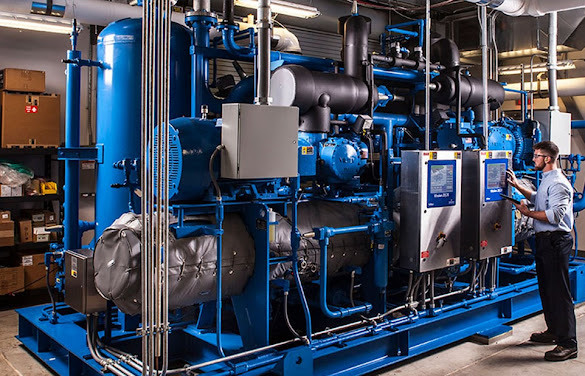The Vital Role of Refrigeration in Medical MRI Technology
In the realm of modern medical diagnostics, Magnetic Resonance Imaging (MRI) stands as a pinnacle of technological advancement. This non-invasive imaging technique allows doctors to peer inside the human body with unprecedented clarity, aiding in the detection and diagnosis of numerous medical conditions. At the heart of every MRI machine lies a complex interplay of physics and engineering, where refrigeration plays a crucial role in ensuring optimal performance.

Understanding MRI Technology
MRI machines utilize powerful magnets and radio waves to generate detailed images of organs and tissues. The core component, the superconducting magnet, requires extremely low temperatures to achieve and maintain superconductivity. This is where refrigeration systems come into play.
The Role of Refrigeration in MRI
Cooling the Superconducting Magnet: The superconducting magnet in an MRI machine operates at temperatures close to absolute zero (-273.15°C). Achieving and maintaining such temperatures is facilitated by sophisticated cryogenic systems. These systems rely on specialized refrigerants and cooling mechanisms to ensure the magnet remains superconducting, which is essential for the precise and continuous operation of the MRI.
Heat Dissipation: During operation, the MRI machine generates heat due to the flow of electric currents and radiofrequency pulses. Efficient refrigeration systems are crucial for dissipating this heat to prevent overheating, which could damage delicate components and compromise image quality.
Challenges in MRI Refrigeration
Energy Efficiency: Maintaining ultra-low temperatures requires significant energy input. Advancements in refrigeration technology focus on improving energy efficiency to reduce operational costs and environmental impact.
Reliability: Continuous operation is critical in medical settings where MRI scans are vital for patient care. Refrigeration systems must be highly reliable to minimize downtime and ensure the availability of imaging services.
Future Innovations
Researchers and engineers are constantly exploring new refrigeration technologies to enhance MRI capabilities. From more efficient cryocoolers to advanced thermal management systems, these innovations aim to improve image quality, reduce energy consumption, and increase the accessibility of MRI technology.
In conclusion, refrigeration systems are indispensable in the field of medical MRI technology. They play a crucial role in maintaining the superconducting state of the magnet and ensuring optimal performance of the MRI machine. As advancements continue, the integration of more efficient and reliable refrigeration solutions promises to further enhance the diagnostic capabilities of MRI technology.

Comments
Post a Comment